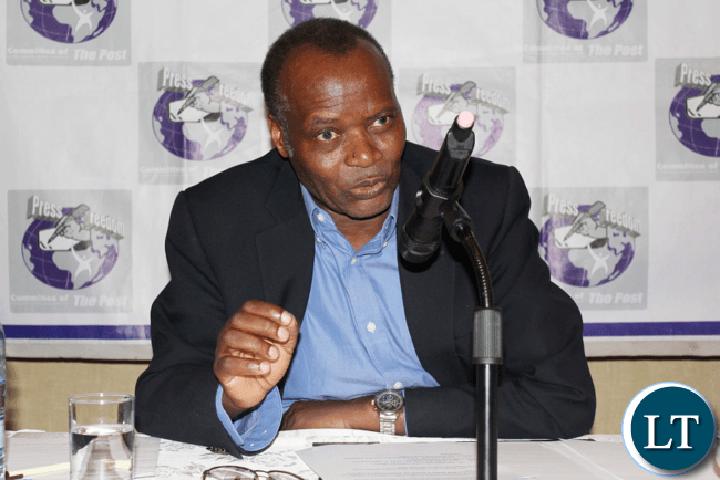Africa-Press – Zambia. A Constitutional Law Expert Prof. Muna Ndulo cites the lack of expert involvement and adoption of a good process as the main drive to the failure of the Zambian Constitution-making process.
Experts play an important role in the formulating process of a constitution as they are fully equipped with knowledge and understanding of how clauses link up in the constituency for this not just a piece of legislation, but a framework document which must have a sequence on various aspects. Prof. Ndulo highlighted this when he made an appearance on HOT FMs Red Hot Breakfast Show.
Prof. Ndulo noted that the inability to realise that there’s actually a role to engage experts who understand and put the nation before anything else in the constitution-making process is one of the major things that has led to the failed Zambia process of putting in place an agreeable and durable constitution.
He added that one of the key things that should happen is to agree on a process with expert involvement that can produce a good constitution that looks at all the viable elements that need to be put in place.
He said that looking at countries such as South Africa and Kenya, what people missed was the critical role that acknowledged constitutional experts played in South Africa and Kenya, in Kenya for example there was a committee of nine experts compromising of both local and international experts who developed a draft constituency taking into account all the views from all stakeholders and once the draft was finalised it was given to the public for comment.
“In the Kenyan process, a draft constitution was prepared by the experts and given to the public for assessment with a given time frame so that it doesn’t go on forever and South African laid down a good process which had a role for experts through an expert committee,” he said
Prof. Ndulo noted that another major problem in the constitution-making process is the process itself, which is as important as the content for one cannot have a good constituency without a good process.
He explained that the idea of setting up commissions and adopting a commission-based process is only good for gathering information, which is why in Zambia today we have an abundance of information in terms of the peoples’ views about the constituency making process which has posed a challenge on how to use the information in order to move forward.
“It doesn’t matter what content you have but if the process is wrong you are going to have disagreements,” he said
Prof. Ndulo further explained the need to conduct a comparative study by looking at successful processes from other countries such as Kenya and try to learn from them as there is nothing wrong about learning from other countries or other processes because this is how you learn and build knowledge.
“Nobody has answers to everything, we all learn from each other,” he said
He emphasised that in the past the major flow has been the process where the avenue has been using the Enquires Act which was not designed to produce a constitution but rather designed to do enquiries, which is colonial piece of legislation which was used as a means for enquiring.
“For example, if they are disturbances or problems let’s say in mining, you come up with facts where the government takes into account recommendations and decides based on that,” he said
Prof Ndulo added that the Enquiries Act is not a framework for developing a constituency because there hasn’t been any single country that has developed a constitution using this Act because all the countries that have tried using this Act have had the same problem that Zambia has.
He stated that the Constitution making process is not the responsibility of the government alone but for everybody such as the press, political parties and all stakeholders that can help to create an understanding that the constitutional making process is a national matter not a political party issue.
Prof. Ndulo mentioned that political parties must begin to understand that the constitution making process is a national project which needs a framework and not some piece of policy legislation which can be argued about.
“Putting in place a proper framework can enable the Zambian constitution to be done in a year,” he stated
For More News And Analysis About Zambia Follow Africa-Press







